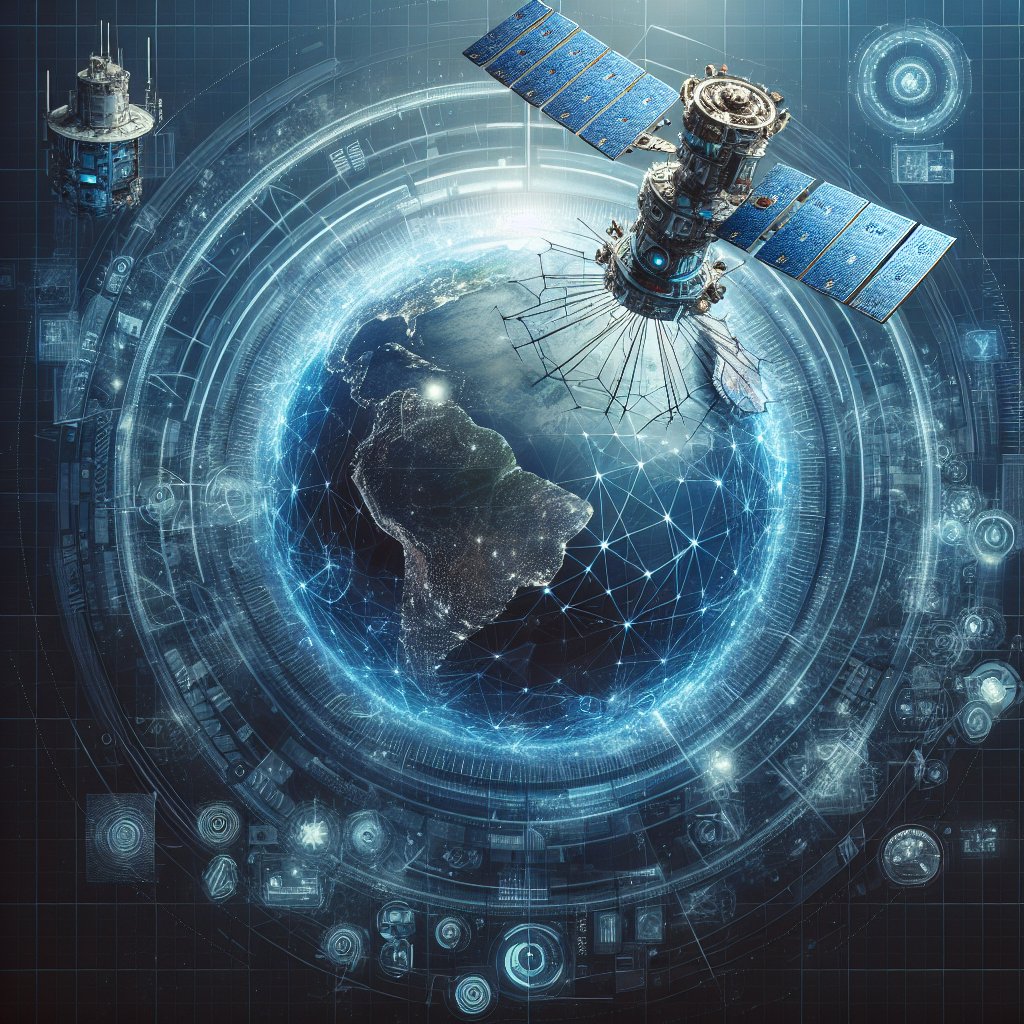Image created by AI
Satellite Hacking: A Grave Threat to Global Cybersecurity and Stability
The modern era has ushered in a dependence on space technology that is unparalleled in human history. Satellites are the linchpins of global communication, navigation, and security systems; without them, the seamless connectivity we take for granted could collapse. Yet, as our world grows more interconnected, so does the risk of cybersecurity breaches — with satellites becoming prime targets for those with malign intent.
A recent concerning episode was the cyberattack on the KA-SAT network, a stark reminder of how vulnerable these space assets are to disruption. Viasat's satellite services were substantially compromised, affecting users across Europe and igniting fears of international conflict, as accusations of Russian involvement surfaced. Albeit unconfirmed officially, the implications were serious enough to put the world on alert. Such breaches underscore the immediate and real dangers that satellite hacking poses to the sectors reliant on these orbiting technologies.
These incidents reveal an alarming trend – the commercialization of hacking tools and the rise of state-sponsored cyber warfare are pushing the stakes ever higher. The possibility of Russia developing an anti-satellite weapon, potentially nuclear-powered, only raises the specter of space becoming a hotbed for hostilities. The seeming shift from traditional espionage to technologically advanced methods stresses an urgent need to rethink and reinforce cybersecurity in the cosmic arena.
From the late 20th century, the focus of concern regarding satellite security has shifted from the threat of physical interference to that of cyberattacks. Early incidents, like the hacking of US-German satellites in 1998, may seem insignificant compared to today's standards where artificial intelligence (AI) and machine learning are being weaponized to uncover new vulnerabilities. Attackers are no longer content with mere disruption; their objective is absolute control or corruption of data, which satellites carry in abundance.
The shift from analog to digital technology has exposed satellites to cyber threats unique to their operation environment. Satellites are isolated, orbits away, and rely on wireless communications vulnerable to jamming, spoofing, and interception, not to mention the challenges in updating software due to bandwidth constraints.
Space agencies and private enterprises have risen to the challenge, pooling their resources and expertise in a collaborative effort to shore up defenses around these celestial linchpins. Initiatives like secure communication protocols, AI-driven anomaly detection systems, and quantum encryption aim to enhance the resilience of satellite networks. International cooperation, exemplified by the Five Eyes intelligence alliance and partnerships with industry leaders, has become a cornerstone of current global strategies to protect these assets.
Notwithstanding, the adoption of AI security protocols and quantum encryption faces hurdles. The former struggles with limited datasets necessary to learn and adapt to potential threats in the context of space, while the latter remains in experimental stages with a long road ahead before it becomes a practical option for space.
The repercussions of failing to shield satellites from cyber threats cannot be overemphasized. Economically, the costs could be staggering. A major satellite breach has the potential to cause billions in damages, crippling global services with a domino effect on other sectors of the economy. Cybersecurity in space, therefore, has ramifications that transcend mere technical issues, influencing international diplomacy and economic policies worldwide.
The intersection of cybersecurity with international relations and global economics highlights the complex, interwoven nature of modern security challenges. As cybersecurity threats expand into space, stakeholders including governments, corporations, and security experts must remain ever vigilant, fostering innovation and promoting a united stance to preserve the crucial role that space assets play in our lives and to uphold global stability and prosperity.










